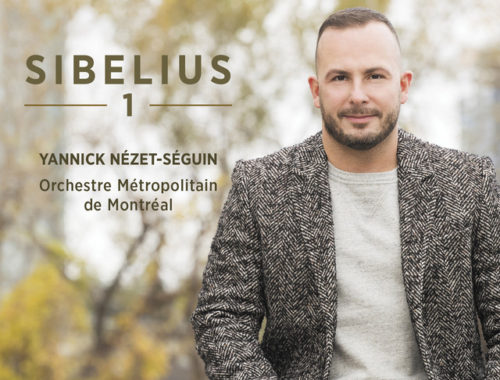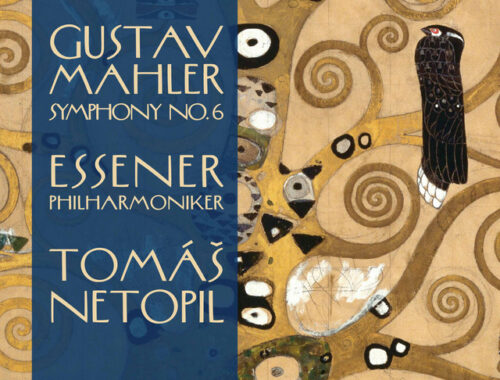Verdi “La Traviata”, English National Opera, London Coliseum (Review)
So this is La Traviata laid bare, stripped of all superfluities (some chorus, all ballet, offstage reveries in the final scene), and played out “in secret”, as it were, behind closed curtains. Actually the director Peter Konwitschny has created a Freudian succession of curtains opening and closing to infinity. They are at once a theatrical convention – the dividing line between us the audience and the stage – and a metaphor, peeling away like layers of deceit and at one crucial point dropping away altogether as if to say “there will be no more deceit, no more play acting – this is real.”
The first thing to say is that it is amazing how these judicious cuts (and surely only purists, only those insistent upon a complete text – and I do myself have some sympathy) and the absence of scene breaks and an interval intensify the drama and heighten the reality of Violetta hurtling ever more irresistibly towards her destiny. It’s also a very physical production which kicks in almost immediately with a menacing “reveal” of the demimonde at play: bought women roughly handled, tension and animosity palpable beneath the raucously jolly surface. These “party” scenes are ugly and then some. Women – not least the bunnified “hostesses” – are objectified and humiliated. At the moment of Violetta’s degradation in the climactic gambling scene the entire assembly break off from their meal, napkins tucked and knives and forks at the ready as if they are quite literally about to devour their latest victim – yet another “fallen woman”.
Konwitschny does not shrink from revealing the underbelly of what is merely suggested and some may find the idea of Giorgio Germont actually bringing along his young daughter to guilt-trip Violetta into giving up Alfredo as somewhat gratuitous. That Germont is a prude and a bully is yet another layer of subtext that Konwitschny makes more explicit. And his portrayal of Alfredo as a bookish, rather dowdy, anti-romantic hero – clearly from another class and set of ethics from Violetta’s milieu – might also be regarded as unsubtle.
But what comes across so strongly here is the distinction between what is real and meaningful and what is counterfeit and worthless. In a sense we never know who Violetta really is until it is too late. She’s afraid to be herself. A succession of wigs serve as her disguises in public and even in private. In that first scene she might be Lulu about to play the first of her “scripts”. I think it’s a measure of the production’s intrigue that we do not believe for one moment that Violetta and Alfredo’s love is real until that sensational moment in scene two where she implores him to love her and make her life for that moment and forever – complete.
Corinne Winters – making what must surely be counted as a sensational European and ENO debut – plays that moment with heartrending truth, putting behind her all the artifice and game-playing and social frivolity of the first scene. Winters is petit and beautiful and physically uninhibited on stage and her voice – more substantial than one might expect – has many colours, not least in the middle and lower register where so many of Verdi’s home-truths lie. The top is brilliant and the delivery fearless and in “Sempre libera” the mix of “torment and pleasure” is vocally and physically intoxicating as she teeters precariously on the edge of a chair as if finally abandoning to the risk that will mark the beginning of the rest of her life. We also get the vertiginous high E-flat to drive the point home.
Ben Johnson is given a tougher task in this production but shows us how his young voice is really fleshing out and developing. It’s a lovely affecting sound and he must look after it through judicious repertoire choices. Anthony Michaels-Moore was not perhaps in the peak of his form – especially where beauty was called for – but his forcefulness was certainly effective and his presence commanding. Michael Hofstetter conducted with sensitivity and excitement and capitalised, one felt, on the through-momentum he was gifted by the production.
I won’t reveal Konwitschny’s final ploy to separate, as it were, reality from artifice except to say that Violetta makes her final exit from an unkind world through one last set of curtains to vanish alone into the darkness beyond.
A Conversation With SIR BRYN TERFEL
You May Also Like

GRAMOPHONE Review: Sibelius Symphpony No. 1 – Orchestre Métropolitain de Montréal /Nézet-Séguin
14/08/2019
GRAMOPHONE Review: Mahler Symphony No. 6 – Essen Philharmonic Orchestra/Netopil
17/06/2020
2 Comments
Una Barry
It was just outstanding, and a show not to be missed!
John Crisp
Having read the Independent review, I was rather dreading it. Wrong. It was one of the finest Traviatas I’ve ever heard (My first was WNO in 1948). Corrine Winters is a sensation. GO.